To the birthday of Vladimir Batahovich Tugov, the founder of the Abaza literary studies and folklore studies, the WAC web information portal prepared material on this amazing scholar.
Georgy Chekalov
Vladimir Tugov was born on April 25, 1935 in Karachay-Cherkessia, in the village of Koydan. After graduating from elementary school in his native village, and then secondary school in the neighboring village of Nikolayevskoye, he entered the Faculty of History and Philology of the Kabardino-Balkarian State University, which he completed in 1960 with honors. At the same time, he was accepted as a junior researcher in the literature and folklore sector of the Karachay-Cherkessian Research Institute (KCRI). 45 years of his scientific work have become a great contribution to the development of literary thought.
“Fairy tale, fairy tale, little story”
The generation of Abaza children born in the late 50s - early 70s of the twentieth century, grew up on the tales of Vladimir Tugov. Or rather, on fairy tales collected by him and published in two collections: “Tales of Abazashta” (1965) and “Fairy tale, fairy tale, little story” (1968). Boys and girls read these books with great interest, and then rejoiced to each other fantastic stories and Hoxha stories (the hero of the Abaza folk tales Hoxha - ed.).
In the 1980s-90s, Vladimir Batahovich released three more collections of children's folklore, ethnographic sketches, fairy tales and legends. The most significant of them, of course, was the collection “Abaza folk tales”, published in Russian in 1985 in Moscow, with a circulation of one hundred thousand.
The well-known Abkhaz folklorist Sergey Zukhba in his review notes that this work “gives an opportunity to more fully present the subject and plot composition of the fairy tale epos of Abaza”. He explains that since most of the collection’s fairy tales have been recorded “over the past four to five decades,” this makes it possible to assess the fate of traditional folklore these days. Tugov scrupulously selected the most characteristic, truly folk and artistically perfect samples for the collection, he wrote down a considerable part of the folklore material himself.
He was not just a collector, but also a researcher of folklore. Tugov outlined in the introduction to the collection his conclusions and thoughts, born in the process of such research. “<Compiler of “Abaza folk tales”> informs about the main milestones of the history of the Abaza people, describes the main genres of Abaza folk prose, <...> determines the place and extent of this genre in Abaza folklore, reveals the ideological and aesthetic essence of the fairy tale, reveals its role in the spiritual life of the people, makes very interesting observations on the current state of traditional folklore prose,” writes Sergey Zukhba.
“He did not forget anyone, did not miss anything”
The first publications of the young scientist began to appear in print the next year after his arrival at the Karachay-Cherkess Research Institute, but they were not about oral folk art, but Abaza literature.
First, he responded to the collective collection of Abaza writers “Abazashta” by writing the article “The Right Way” for the newspaper “Kommunizm Alashara” (now - the newspaper “Abazashta” - ed.). Then there were other articles: “Literature in the thick of life”, “Image of our contemporary in literature”, “War, heroism, literature”, “Achievements and objectives”, “Mirror of life”.
In 1965, Vladimir Tugov began publishing a series of literary essays about Abaza writers: Pasarbi Tsekov, Kali Dzhegutanov, Bemurze Tkhaytsukhov, Mira Tlyabicheva, and Dzhemuladin Laguchev. These are thoughtful, serious works, analyzing the state of national literature, defining the contribution of each writer to its formation. The essays formed the basis of the monograph “The Formation of Abaza Literature”, published a year later in Cherkessk in the Abaza language. It became the first book of Tugov and the first book on the history of Abaza literature. And in 1967, on the basis of the same monograph, Tugov defended his Ph.D. thesis on the Formation and Development of Abaza Literature at the Institute of History of Georgian Literature of the Academy of Sciences of the GSSR (Georgian Soviet Socialist Republic - ed.).
Continuing this work, three years later, Vladimir Batahovich published in Russian a major work of his time - “Essays on the history of Abaza literature.”
“Since the publication of Essays on the History of Abaza Literature, almost half a century has passed, but until now nothing has been created in Abaza literary criticism that is equal in its thoroughness, breadth of coverage, depth of penetration into the material under study,” says Professor Peter Chekalov.
A detailed analysis and appreciation of the “Essays” on the pages of the national newspaper (the same newspaper “Abazashta” - ed.) was made by its editor-in-chief Khamid Zhirov.
He writes that, before Tugov, “many began to recreate the history of Abaza literature,” but did not complete their endeavors without mastering this work: “Tugov did something that nobody could do; he did not forget anyone, did not miss anything. In addition to the works of the past years, the scientist also dwells on the work of those who today work in Abaza literature, indicating their successes and shortcomings; he gave us the opportunity to trace the history of the birth and development of the Abaza poem, novel and narrative, to reveal their meaning.”
On the “drums”, “violin” and “lack of poetry” in verses
Vladimir Batahovich noticed, picked up something new that matured and manifested itself in the national literature, and noted this in his works. This is especially vividly revealed in the 1979 collection of literary-critical articles, “The Time of Reflection”.
So, for example, Tugov examines a completely unpretentious poem by Kerim Mkhtse “The Hunter” and sees in it the features of a new thinking. Here is how he writes about the images of the hunter and his “prey” - “the golden deer”. “The language of the poet is clear,“ goldish ”personifies happiness. Such poems are new to our literature. In the verses of yesterday, a man was filled with happiness, the question of whether he would find happiness or not was not raised at all. Now it became possible to raise such questions and reflect on them.”
Further, dwelling on the poem “Days are shortened before our eyes” by the same Mkhtse, the critic makes a significant generalization: “If earlier only drum sounds were heard in the works of our poets, now the violin is already heard”. So in one allegorical phrase, he skillfully and succinctly gives an estimate of all the previous national poetry and that individual lyric stream that broke through in the 1960–1970s with the advent of Mira Tlyabicheva and Kerim Mkhtse.
Literary critic reviews of certain works gain even more weight and importance if we recall that Tugov the critic has always been extremely honest and straightforward in his assessments. Here he, on the pages of the same book, analyzes Bemurza Thaytsukhov's poem “Wind!”, exposing some fragments to just merciless criticism: “There is no poetry here - only information. The poet repeats the well-known, and in this there is no look, there is no heartfire of the poet himself.”
Touching on another collection of Mikael Chikatuev, the critic reveals flaws here as well: in “Native villages”, some verses are unnecessarily stretched. It happens like this: it was enough for the poet to take two steps, and he makes two miles, you could do with two words, and he uses twenty. <...> Why is this happening? In my opinion, the poems were coming easy to the poet. He learned to manage the word, rhythm, versification (versification - possession of poetic technique - ed.)! And gradually, poetry began to be replaced by versification. This is misleading both the poet and his reader: the poems seem to be good, the words are correct, the rhymes are interesting, everything is smooth, but ... it is not poetry. <...> Mikael Chikatuev is a poet, a great poet, and we would not want him to be deceived. It seems to us that in some places he is losing the criteria of poetry ...”
The uncompromising criticism of Tugov came solely from the desire to direct, correct, help, raise the level of Abaza literature, says Professor Chekalov.
“Tugov knew how to be fair, unbiased, and at the same time uncompromisingly critical, - he says. - And it did not proceed from the desire of self-affirmation in the eyes of the public, but from the desire to help national writers to overcome shortcomings. Let us pay attention to such a detail: it was necessary to have the courage and the will to decide on such assessments of comrades in the literary workshop, because psychologically it is not very simple to point out the flaws to a person with whom you maintain good relations. But Tugov did not proceed from friendly considerations, but from an understanding of his duty to national literature. Unfortunately, not always and not everyone perceived his criticism adequately.”
For the interests of the Abaza people
In 1988, the newspaper “Literary Russia” published an article by Vladimir Tugov “... To save the genus” about the dramatic fate of the Abaza ethnos. The publication caused a stir with local party workers. The scholar paid for his incontinence with a severe reprimand and dismissal from his post of scientific secretary of the KCRI. To dismiss Tugov, the party and near-scientific officials had to repeatedly carry out the voting procedure, exerting psychological pressure on all members of the academic council of the institute.
Not everyone succeeds in committing a civil act in life, because of which they could be deprived of work. Tugov managed it. And what was perceived as drama and misfortune in the late 1980s was later transformed into a source of pride and dignity.
Exploring the work of Adil-Girey Keshev, one of the most significant figures of the 19th century North Caucasian enlightenment, Vladimir Tugov was inspired by the idea that the intelligentsia only becomes intellectuals when they live in the thoughts of the people. Vladimir Batahovich himself was one of the best representatives of the Abaza intelligentsia. And it is no coincidence that it was he who was entrusted to speak as a keynote speaker at the first congress of the Abaza people in 1989, when the first national Abaza public organization “Adgylara” was created.
Vladimir Tugov had to defend the truth regarding Keshev’s personality, to whom he dedicated a brochure entitled “From the history of social thought and enlightenment of the Abaza in the 19th Century”, published in 2000. The part of the work where Keshev’s nationality is established is fundamentally important, since some modern researchers have turned the Russian-speaking Abaza writer and educator into the Adyg. On the pages of the brochure Tugov leads a dispute with his opponents - conclusively and uncompromisingly, and at the same time tactfully and correctly.
“You can call me: Volodya, Vova, Vovchik ...”
In ordinary life, Vladimir Tugov was a kind-hearted man - very friendly, ready to help even a stranger. Writer Yury Shidov recalled one such case during their intercourse in the city park of Cherkessk. On the next bench was a man who was tormented by severe shortness of breath. Vladimir Batahovich got up, walked over to him, they talked about something - and the man left.
“It turned out that an elderly village resident came to the city to consult with a doctor about his illness. But he did not get to the right doctor. Fortunately he met a good stranger, who advised who to turn to and on whose behalf. This is how Vladimir Batahovich, by the call of his soul, showed mercy to an ordinary man before my eyes,” says Shidov and adds that Tugov himself helped him in his time: he introduced him to Georgy Fedorovich Turchininov (Soviet linguist, doctor of science, author of the Proto-Caucasian hypothesis (Ashuy) ed.).
Growing up in a peasant family, Vladimir Tugov, even becoming a famous person, never got a big head, was simple to communicate. Introducing himself to the students, he could say: “You can call me: Volodya, Vova, Vovchik - just do not distort my patronymic: father is sacred.”
He loved his family very much - his wife Fatima, son Zaur and daughter Zaira. They reciprocated. True, none of the children followed in his footsteps. However, the “Tugov dynasty” in Abaza philology was not interrupted: it is continued by the niece of Vladimir Batahovich Lelya Tugova - Candidate of Philological Sciences, Associate Professor of the Department of Literature and Journalism, KCSU.
Matter of life
In the professional field, Vladimir Batahovich Tugov went from junior research officer of the Karachay-Cherkessian Research Institute to the head of the literature department of Karachay-Cherkessian State University, doctor of philological sciences, professor, honored worker of science of the Russian Federation. He did not just became successful as a scientist - he is called the founder of Abaza literary criticism. And, even if the time comes when the Abaza will number dozens of their philology doctors, this truth will remain indisputable.
Some of the works and books of the early 2000s were a sort of result of his life’s activities.
Thus, the research of Tugov in the field of oral folk art ended with the monumental book “The memory and wisdom of the ages”, published in 2002. This work is a detailed study of almost all Abaza folklore material collected and published to date.
“It’s impossible not to be amazed at the breadth of the material, it’s impossible to envy the author’s subtle ability to accompany <...> material with mythological, religious, historical, philological, ethnographic, astronomical references. All of them not only lucidly explain the subject of the research, but give it a deep scientific and philosophical coverage, multiply its cognitive significance,” says the doctor of philological sciences Peter Chekalov.
Tugov defended his doctoral thesis on September 5, 2003 at the Adygeya State University in two specialties at once: folklore studies and literature of the peoples of the Russian Federation. His work “Folklore and literature Abaza: dynamics of interaction” has absorbed much of what has been mastered by scientists for more than 40 years of research in the field of Abaza folklore and literature.
For his 70th birthday, Vladimir Tugov was preparing a collection of selected articles on topical issues of folkloristics and literature of the peoples of the Caucasus, but did not have time to witness it’s publication. His last book, “Literature in a changing world. Articles of different years” was published after the death of the scholar.
Vladimir Batahovich died on February 21, 2006. In 2011, his name was given to Koydansk High School.
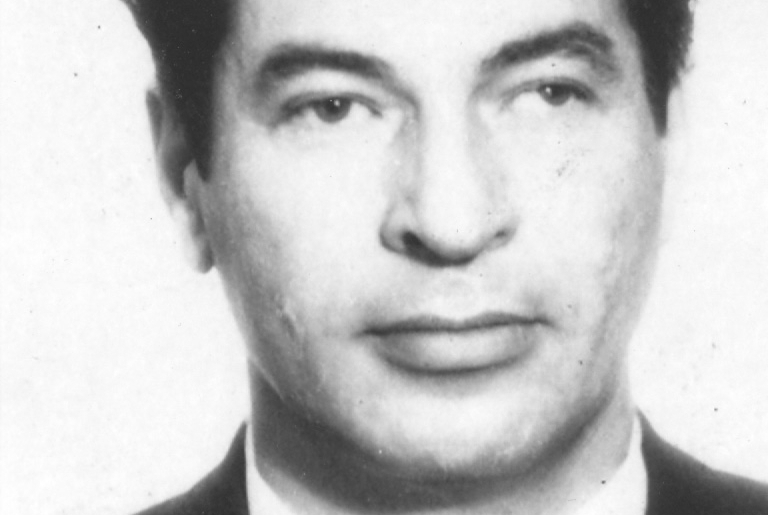
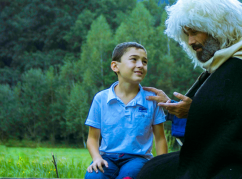
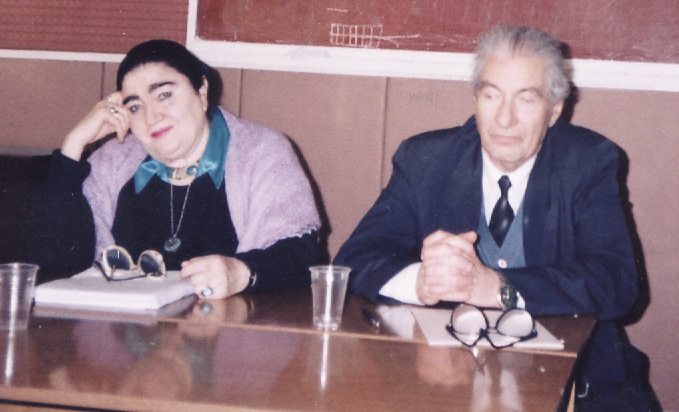
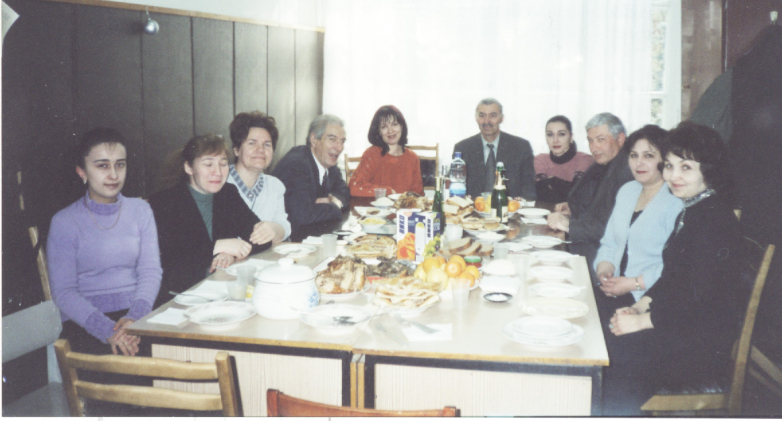
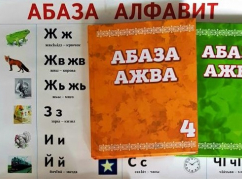
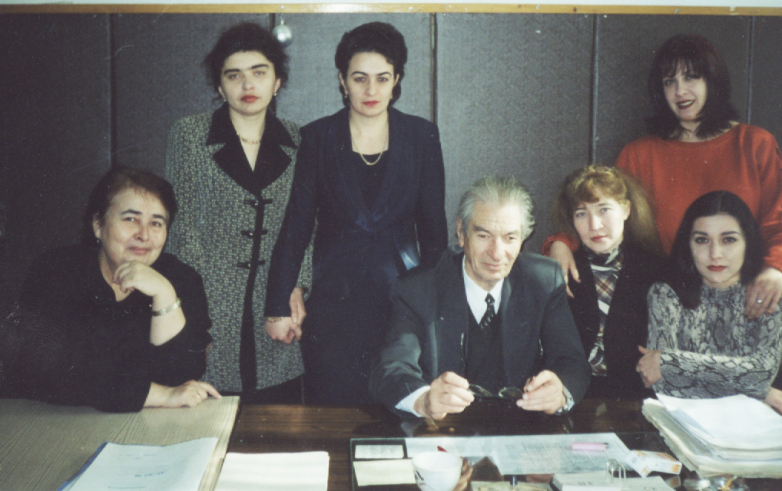
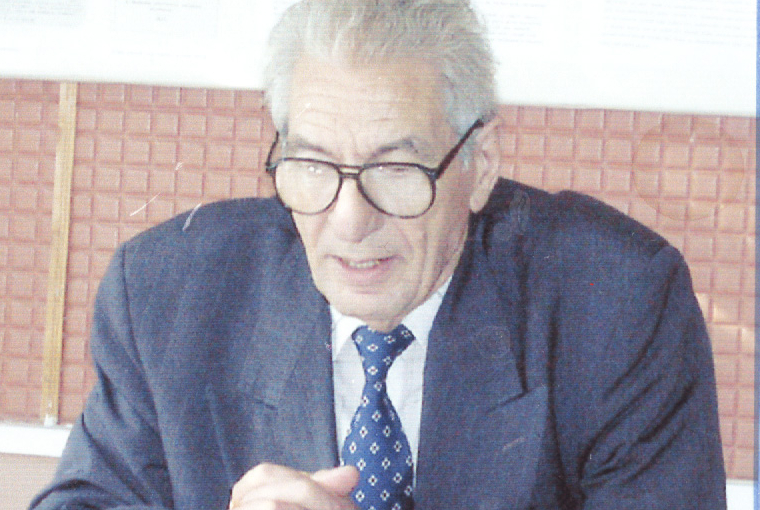
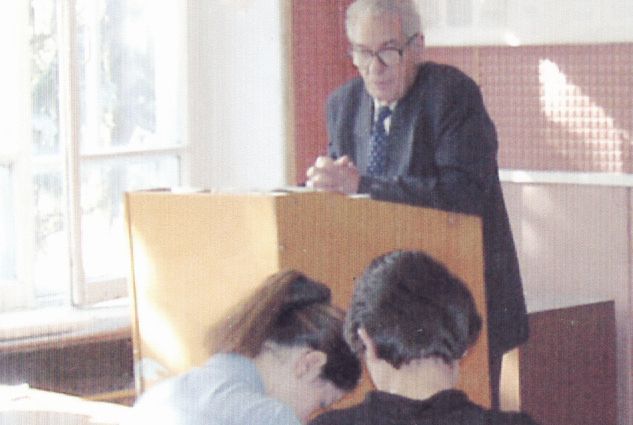
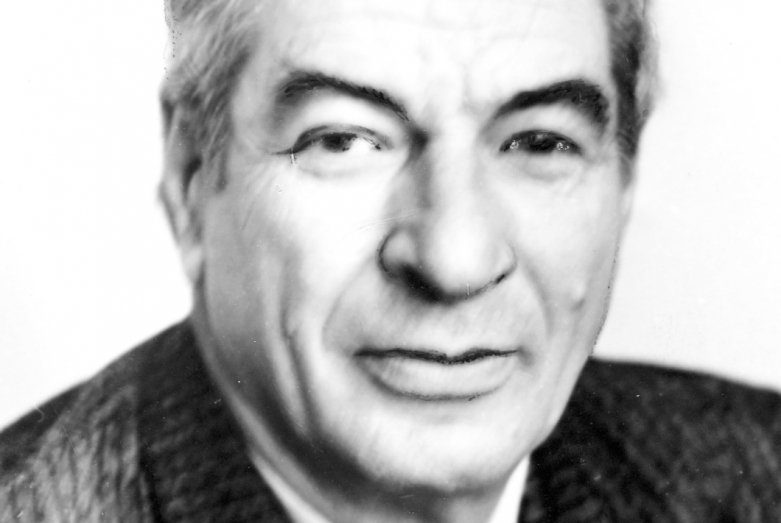
to login or register.